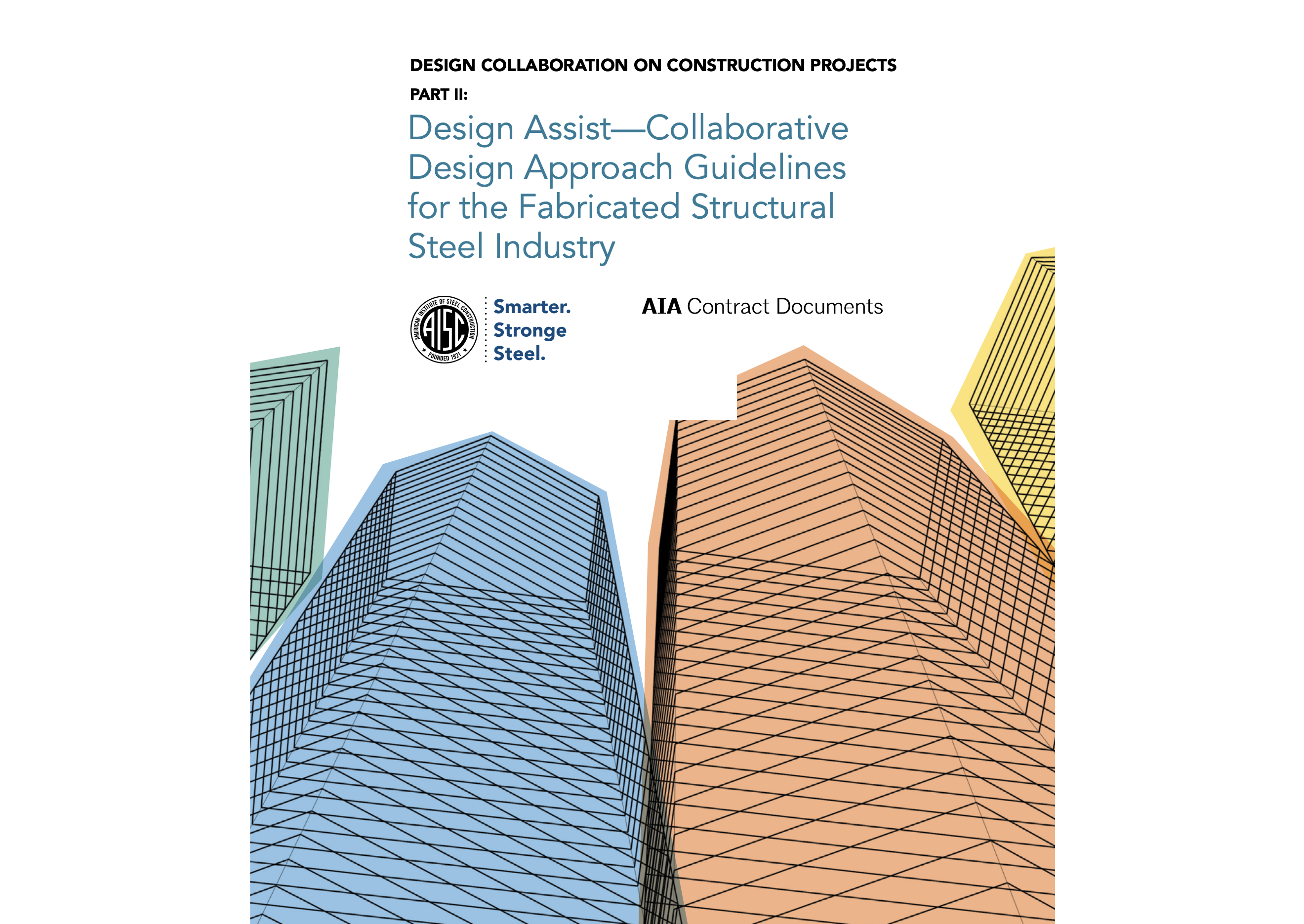The American Institute of Steel Construction and AIA Contract Documents have released the second part of a document intended to provide guidance for three common collaboration strategies.
The document, Design Assist: Collaborative Design Approach Guidelines for the Fabricated Structural Steel Industry, is a follow-up to part one, Delegated Design, Design Assist, and Informal Involvement: What does it all mean?
The strategies covered are informal involvement, design assist, and delegated design. Part II focuses on the implementation of design assist in the fabricated structural steel industry. The document describes the roles and responsibilities of various project participants and provides general guidelines about applying those strategies to fabricated structural steel projects.
“Great teams drive great projects—and great teams rely on clear communication,” said Babette Freund, vice president of special projects, Dave Steel Company, Inc., and chair of AISC’s Code of Standard Practice Committee. “This paper aims to help project teams use design assist strategies to meet a defined project schedule and budget while minimizing the costs and disruptions that might arise from team misalignments.”
How AISC defines design assist for the structural steel industry
According to the guidelines, design assist is, "A form of collaboration where a structural steel fabricator and/or erector (or a fabricator/erector team under one contract, depending on project circumstances) provides information under a contract with the owner or other party as designated by the owner, to assist a structural engineer of record (SER) and other designated members of the design assist team with the design of the structural steel for buildings or building-like structures."
Related Stories
| Aug 4, 2022
Newer materials for green, resilient building complicate insurance underwriting
Insurers can’t look to years of testing on emerging technology to assess risk.
Codes and Standards | Aug 3, 2022
Some climate models underestimate risk of future floods
Commonly used climate models may be significantly underestimating the risk of floods this century, according to a new study by Yale researchers.
Codes and Standards | Aug 2, 2022
New tools help LEED projects reach health goals
The U.S. Green Building Council now offers tools to support the LEED Integrative Process for Health Promotion (IPHP) pilot credit.
Codes and Standards | Jul 29, 2022
Few projects and properties are being built beyond code
Clients and architects disagree on how well building to code provides resilience, according to a recent report by the American Institute of Architects (AIA) in partnership with Owens Corning.
Multifamily Housing | Jul 28, 2022
GM working to make EV charging accessible to multifamily residents
General Motors, envisioning a future where electric vehicles will be commonplace, is working to boost charging infrastructure for those who live in multifamily residences.
Codes and Standards | Jul 27, 2022
Biden administration proposes drastic flood insurance reform
The Biden administration’s proposed major overhaul to the National Flood Insurance Program, or NFIP, would drastically alter how Americans protect homes and businesses against flooding.
Codes and Standards | Jul 22, 2022
Office developers aim for zero carbon without offsets
As companies reassess their office needs in the wake of the pandemic, a new arms race to deliver net zero carbon space without the need for offsets is taking place in London, according to a recent Bloomberg report.
Codes and Standards | Jul 22, 2022
Hurricane-resistant construction may be greatly undervalued
New research led by an MIT graduate student at the school’s Concrete Sustainability Hub suggests that the value of buildings constructed to resist wind damage in hurricanes may be significantly underestimated.
Building Team | Jul 20, 2022
San Francisco overtakes Tokyo as the world’s most expensive city for construction
San Francisco has overtaken Tokyo as the world’s most expensive city for construction, according to a new report from Turner & Townsend.
Airports | Jul 18, 2022
FAA will award nearly $1 billion for airport projects
The Federal Aviation Administration (FAA) will award nearly $1 billion to 85 airports of all sizes across the country to improve terminals.

















